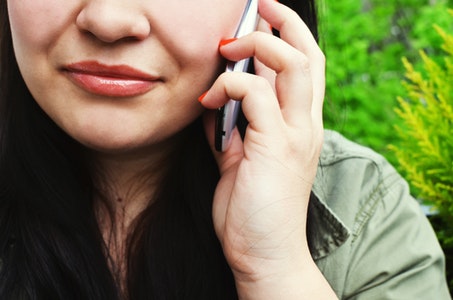For a long time snoring has been considered little more than a nuisance. However, they are not something we should ignore. According to sleep experts, snoring is a sign that something is happening.
“When you snore, you spend too much energy to breathe,” says Dr. Safwan Badr, president of the American Academy of Sleep Medicine. “Snoring is like a fever for internal medicine; He tells you that something happens, but he does not tell you what. ”
Snoring occurs when a person’s airway narrows, causing the tissue in the throat to vibrate when air passes through it. “In principle, snoring is not normal,” he says. As a doctor, you would like to know why a person snores to provide you with the best treatment, rather than the person who is in charge of your care. “I would make sure that the body is not warning us of a breathing disorder during sleep or of sleep apnea,” he explains.
During sleep apnea, people who snore stop breathing, and this can happen hundreds of times each night. It is important to receive an accurate diagnosis since it has many repercussions on health. Apnea raises the risk of heart attacks, depression, and diabetes. Although snoring caused by a seasonal allergy or nasal congestion, there are treatments, that can improve these conditions, and only doctors know, he says.
Even so, many snoring people and their sick bedfellows are still looking for small home remedies to relieve snoring. Badr tells us about the options available in the market that can work, and others for which it is not worth spending time or money.
Nasal Strips
The verdict: Forget about them. The doctor says that in general, they do not work. The nasal passages of people who snore suffer a severe narrowing, which means that some strips cannot act in sufficient depth. “They can (or can not) affect acoustics,” he explains, “but not to the mechanics of the airways.” In other words, frustrated bed partners may hear less noise, but the problem is not going to go away so quickly.
PureSleep Cleaning Guide
Lose weight
The verdict: Try it! An overweight person often has more tissue in the neck, which presses on the airways and produces the vibrations that snoring generates, explains the doctor. “People who are gaining weight every year can develop sleep apnea; But, if you get fat when you start to snore, losing weight can help relieve your snoring. ” In any case, losing that overweight carries some additional health benefits.
Sleeping on your side
The verdict: Try it! If you sleep on your back, the pressure on your neck is more considerable. Therefore, when turning the body, the snoring is softened, explains the doctor. People who snore probably used to being nudged by their partner. If you want to save the occasional bruise, experts recommend this homemade trick: sew a tennis ball into the front pocket of an old shirt; then, put your shirt inside out to sleep. Thus, you will not be tempted to sleep on your back.
Sleep with a humidifier
The verdict: It can consider. If your snoring caused by an allergy or nasal congestion and dry air makes your symptoms worse, humidifiers can be helpful, says Badr. First of all, it is not harmful. However, he cautions, “although many of these remedies may work in part, they are probably not the definitive solution.” If you think that snoring can cure with a humidifier, you are minimizing the seriousness of the matter; instead, you should consult your doctor, he suggests.
Avoid alcohol at night
The verdict: Try it! If you occasionally snore, drinks before going to bed can make your situation worse, says Dr. Badr, because alcohol relaxes the muscles that keep the airways open. Alcohol before going to sleep also causes a less refreshing, unpleasant sleep, so it is best to avoid it at night, even if you do not snore.
Special pillows
The verdict: Forget about them. Although it is true that, depending on the position of the neck, the airways can widen or narrow, it is normal to change your posture throughout the night, explains Badr. Suppressing snoring is usually not as simple as buying a new pillow, he says, and there is no scientific evidence to prove its usefulness.
Nasal valves
The verdict: You can pose it. The Food and Drug Administration (FDA) has approved nasal valves for the treatment of sleep apnea, explains the doctor, and may also be available for snoring. However, they are for single use, and they are not exactly cheap, mind you.
Oral devices
The verdict: You can ask it if you are tired of the other options. In a patient with sleep apnea who do not respond or does not tolerate treatment by continuous positive airway pressure (CPAP), some type of buccal device that moves the jaw may be useful. Dr. Badr says that these devices can also be beneficial for people who snore, although it is true that if they have not diagnosed with sleep apnea and the doctor has not prescribed this treatment, the price rises a lot.
Surgery
The verdict: It can consider… “CPAP is the reference treatment,” says Badr, and if you snore so much that you have even discussed the possibility of operating, you probably have sleep apnea. Surgery is an option only in cases in which the CPAP treatment has not worked. Also, a team of doctors and specialists must evaluate before making a decision. An operation of such characteristics cannot take lightly.
In conclusion: pay attention to your snoring, especially if you have other ailments or if you feel tired for the day, advises Badr. “People tend to justify their symptoms, but they may be missing something important.”



